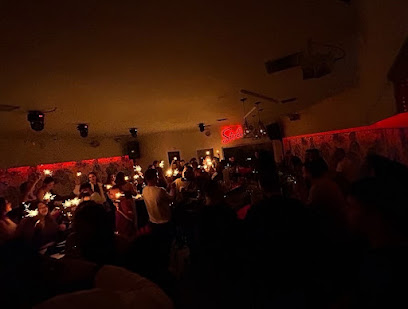
Explore the Resilience at the Municipal Museum of Kalavritan Holocaust
Discover the poignant history of the Municipal Museum of Kalavritan Holocaust in Kalavryta, a tribute to resilience and remembrance.
The Municipal Museum of Kalavritan Holocaust in Kalavryta is a poignant tribute to the resilience of the human spirit. Visitors can delve into the town's tragic history through powerful exhibits that honor the victims of wartime atrocities. This museum is a must-visit for those seeking to understand the cultural heritage and historical significance of this beautiful region.
A brief summary to Municipal Museum of Kalavritan Holocaust
- Ανδρέα Συγγρού 1-5, Kalavryta, 250 01, GR
- +302692023646
- Visit website
- Tuesday 9 am-4 pm
- Wednesday 9 am-4 pm
- Thursday 9 am-4 pm
- Friday 9 am-4 pm
- Saturday 9 am-4 pm
- Sunday 9 am-4 pm
Local tips
- Visit during weekdays for a quieter experience and more personalized attention from museum staff.
- Allocate at least two hours to fully appreciate the exhibits and the stories they convey.
- Check for any guided tours available on the day of your visit for a comprehensive understanding.
- Photography may be restricted in certain areas; always check with museum staff before taking pictures.
- Combine your visit with a stroll around Kalavryta to explore its beautiful landscapes and local cafes.
Getting There
-
Bus
From Patras city center, head to the KTEL bus station located at 1, 25th Martiou Street. You can take the bus to Kalavryta, which usually departs every hour. The journey takes about 1 hour and 30 minutes. Once you arrive at the Kalavryta bus station, exit and walk about 500 meters to the northwest along Andreou Syggrou Street until you reach the Municipal Museum of Kalavritan Holocaust at 1-5 Andreou Syggrou.
-
Taxi
If you prefer a quicker option, you can take a taxi from anywhere in Patras directly to the Municipal Museum of Kalavritan Holocaust. You can find taxis at various points in the city, including the main square (Platia Georgiou) or you can call a local taxi service. The journey will take around 1 hour, depending on traffic.
-
Walking from Kalavryta
If you are already in Kalavryta, the Municipal Museum of Kalavritan Holocaust is easily accessible on foot. From the center of Kalavryta, head northwest on Andreou Syggrou Street for approximately 500 meters. The museum will be on your left at number 1-5.
Discover more about Municipal Museum of Kalavritan Holocaust
Iconic landmarks you can’t miss
Mycenaean Cemetery of Voudeni.
37.8 km
Uncover the mysteries of the Mycenaean civilization at this ancient cemetery near Patras, Greece. Explore tombs and artifacts dating back to 1500 BC.
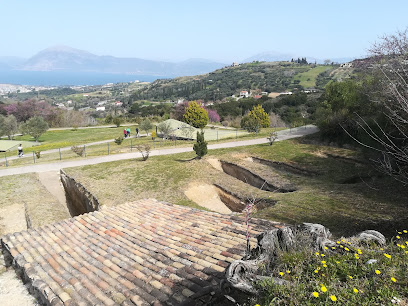
Antic Agora
40.2 km
Step back in time at Patras's Antic Agora, where ancient commerce and civic life come to life amidst classical ruins.
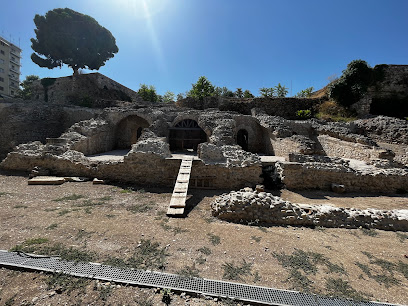
Roman Amphitheatre remains.
40.2 km
Discover the ancient Roman Amphitheatre of Patras, a partially excavated historical site showcasing the city's vibrant Roman past and cultural heritage.
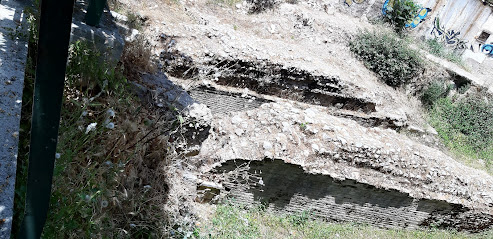
Roman nymphaeum at Kanari street of Patras
40.3 km
Explore the ancient Roman Nymphaeum in Patras, a captivating glimpse into the city's vibrant past and architectural heritage.
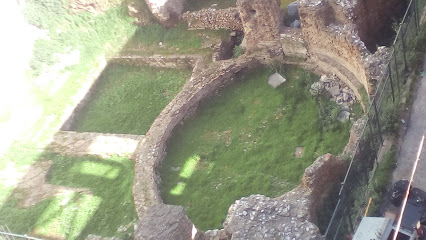
Apollon Theatre
40.5 km
A historic neoclassical theater in Patras, Greece, mirroring La Scala and hosting vibrant cultural performances since 1872.
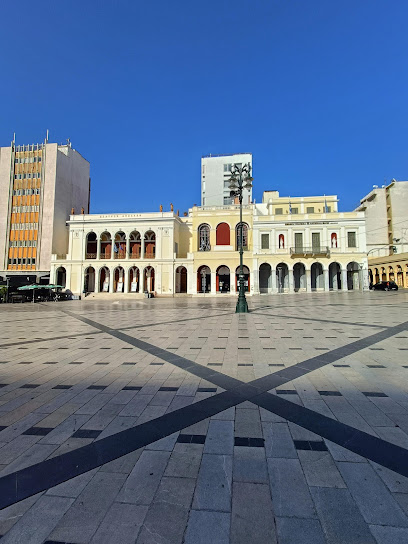
Rio Fortress
42.2 km
Explore the Rio Fortress, a historic guardian of the Corinthian Gulf with centuries of captivating stories and cultural significance.
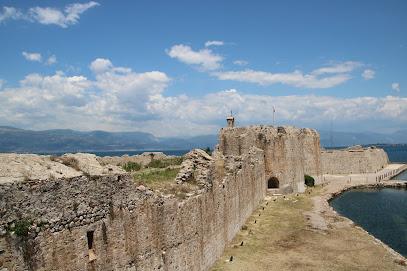
Nafpaktos
46.7 km
Explore Nafpaktos: A historic Greek town with a Venetian castle, beautiful beaches, and a vibrant harbor on the Corinthian Gulf.
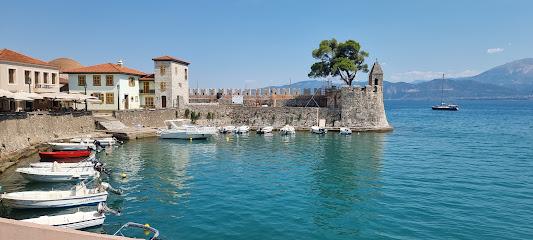
Nafpaktos Venetian Port
47.0 km
Explore the historic Venetian Port of Nafpaktos, a picturesque harbor blending Venetian and Greek charm on the Gulf of Corinth.
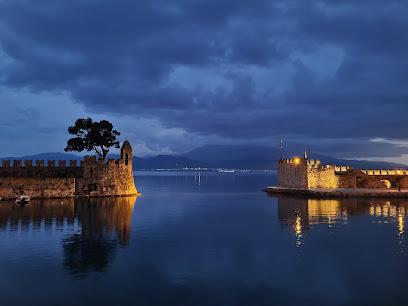
Virgin of the Rock
54.6 km
Discover the serene Virgin of the Rock Monastery near Nemea, a modern marvel built into a rock face with stunning views and a peaceful atmosphere.
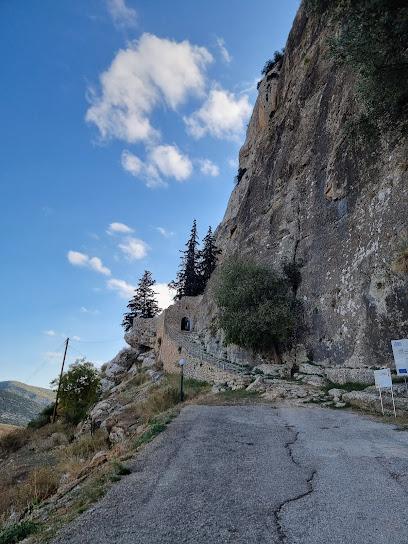
Archaelogical site of Nemea
58.3 km
Discover the ancient sanctuary of Nemea, home of the Nemean Games and the Temple of Zeus, in a valley surrounded by vineyards.
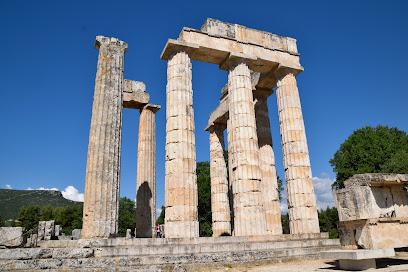
Pavillion
59.3 km
Discover the Pikionis Pavilion in Delphi: A blend of modern architecture, stunning views, and a hub for culture and environmental awareness.
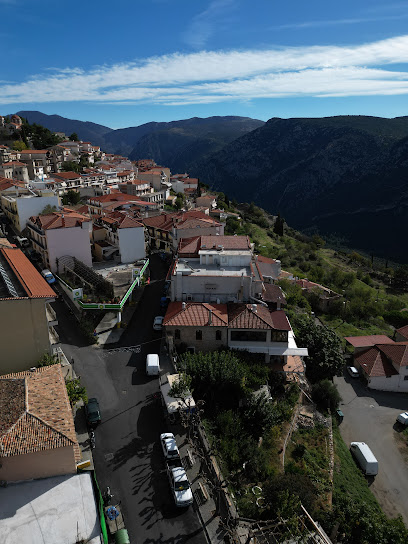
Agia Varvara
59.3 km
Experience the tranquil beauty and rich history of Agia Varvara, a hidden gem in Delphi, Greece, perfect for history lovers and nature enthusiasts alike.
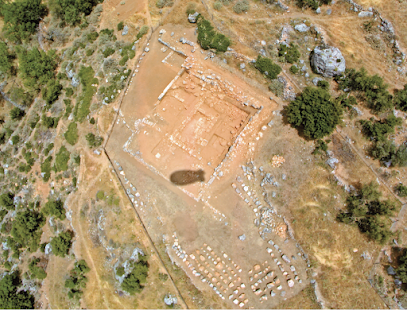
European Cultural Centre of Delphi
59.9 km
Explore the European Cultural Centre of Delphi: Where ancient heritage meets contemporary creativity in a hub of art, culture, and dialogue.
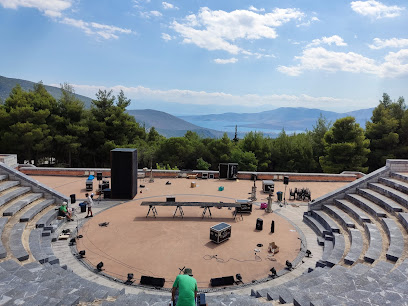
Profitis Ilias Monastery
59.9 km
Discover a peaceful sanctuary near Delphi with stunning views, rich history, and serene gardens at Profitis Ilias Monastery.
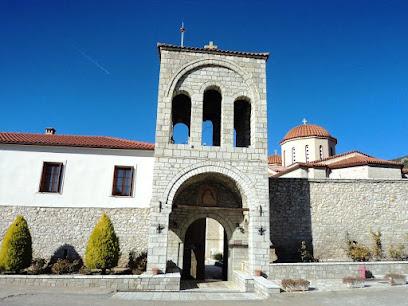
Delphi Flag Gallery
60.0 km
Explore Greek history through vibrant flags at Delphi's open-air museum, offering stunning views and a unique cultural experience.
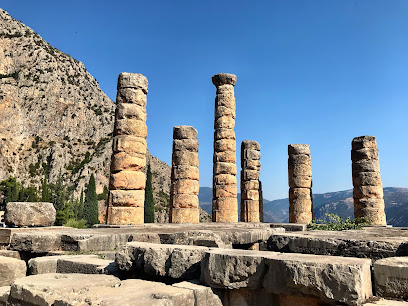
Unmissable attractions to see
Odontotos Rack Railway
0.1 km
Experience the breathtaking Odontotos Rack Railway journey through Greece's stunning Vouraikos Gorge, a perfect blend of nature and history.

Agia Lavra Monastery
3.4 km
Explore the historical Agia Lavra Monastery in Kalavryta, Greece, a serene destination rich in culture and breathtaking mountain views.
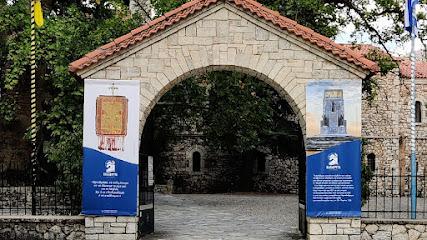
Lykóporta
6.2 km
Explore the serene hiking trails of Lykóporta in Greece, where stunning landscapes and tranquil nature await every adventurer.

Holy Monastery Mega Spileon
8.5 km
Discover the beauty of Holy Monastery Mega Spileon in Kalavryta, a captivating spiritual retreat offering breathtaking views and rich history.
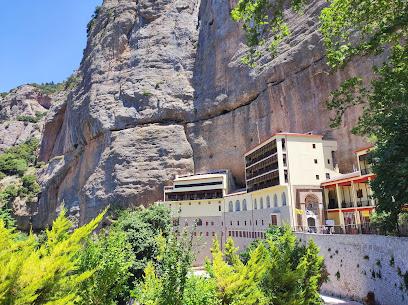
Cave Lakes - Kastria Cave
8.5 km
Experience the enchanting beauty of Kastria's Cave Lakes, where nature meets magic in an underground wonderland perfect for every traveler.
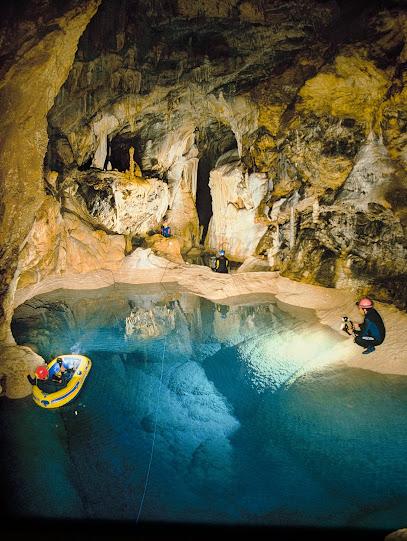
Limni Tsivlou
11.8 km
Experience the serene beauty of Limni Tsivlou, a picturesque lake surrounded by lush landscapes in Akrata, Greece.
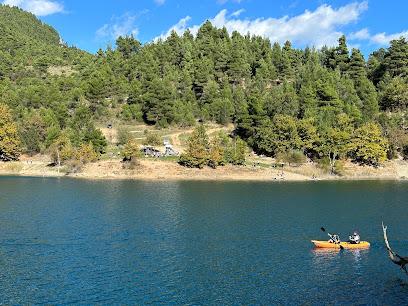
Tsivlos
11.8 km
Explore the breathtaking landscapes, tranquil lakes, and rich culture of Tsivlos, a hidden gem in Greece perfect for relaxation and outdoor adventures.

Stalactite Cave Levavot
13.7 km
Experience the breathtaking beauty of Stalactite Cave Levavot, a natural wonder in Diakopto, Greece, filled with stunning formations and rich history.

Vouraikos
19.0 km
Explore the enchanting Vouraikos River in Diakopto, Greece, a serene escape into nature with stunning landscapes and unforgettable adventures.
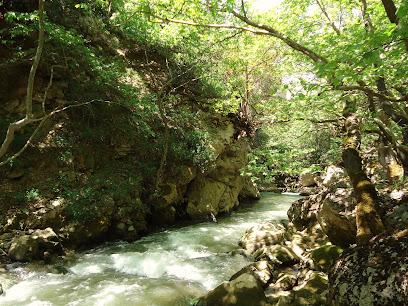
Archaeological Museum of Aigion
24.5 km
Explore Aigion's past in a neoclassical landmark: Discover Neolithic to Roman artifacts at the Archaeological Museum.

Panagia Tripiti
24.7 km
Discover Panagia Tripiti in Aigio: a cliffside church with a miraculous icon, stunning views, and a rich history dating back to the 16th century.

Achaia Clauss
34.9 km
Experience the rich history and exquisite flavors of Greek wines at Achaia Clauss, one of the oldest wineries in Greece, set in a stunning landscape.
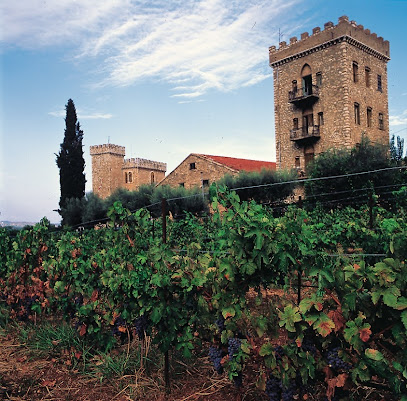
Environment Museum of Stymphalia
35.7 km
Explore the Environment Museum of Stymphalia, a unique blend of nature, history, and conservation in the heart of Greece's breathtaking landscapes.

Central square
35.9 km
Experience the vibrant culture and local charm of Central Square in Krini, a must-visit destination for every traveler in Greece.
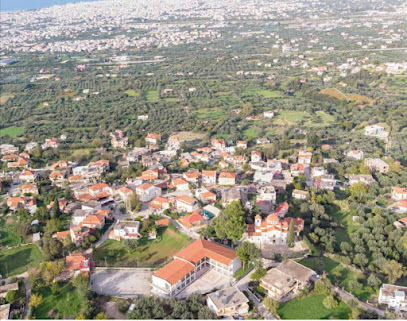
Koutsopoules waterfall
36.3 km
Discover the enchanting Koutsopoules Waterfall in Erineos, Greece, a serene sanctuary perfect for nature lovers and adventure seekers alike.
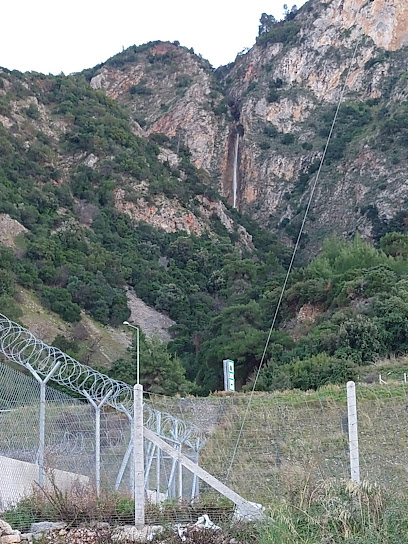
Essential places to dine
Fagioum
40.0 km
Discover Fagioum in Patras: where traditional Greek flavors meet modern culinary artistry in an inviting atmosphere.
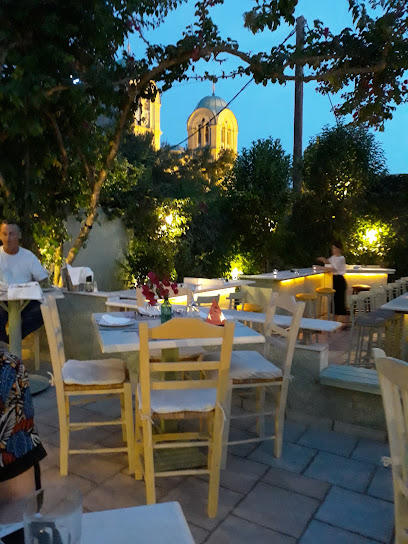
Chasoméri
40.0 km
Discover Chasoméri in Patras: Savor authentic Greek cuisine with fresh ingredients in a welcoming atmosphere.
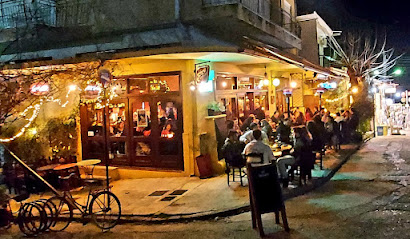
Καστράκι Ουζερί
40.1 km
Discover the flavors of Greece at Καστράκι Ουζερί in Patras – where every dish tells a story.
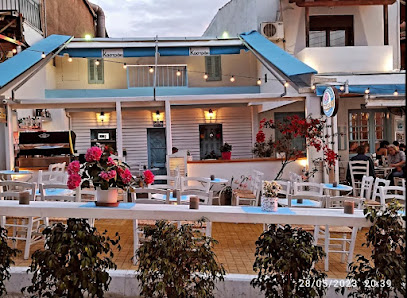
Prego
40.1 km
Discover Prego in Patras: A vibrant tapas bar serving authentic Mediterranean cuisine with an extensive wine selection.
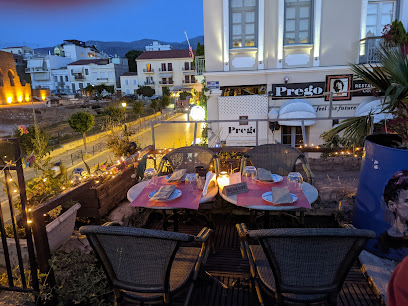
Το Κουτούκι
40.2 km
Discover the essence of Greek cuisine at Το Κουτούκι in Patras – where every dish tells a story of tradition and flavor.
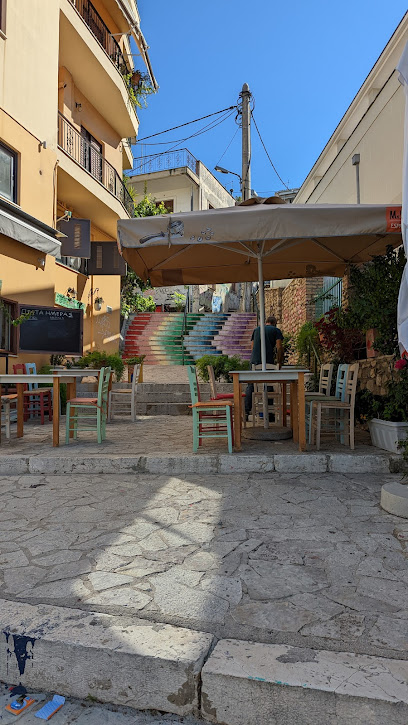
Byssoino
40.2 km
Discover authentic Greek flavors at Byssoino in Patras - where every dish tells a story and every meal is a celebration.
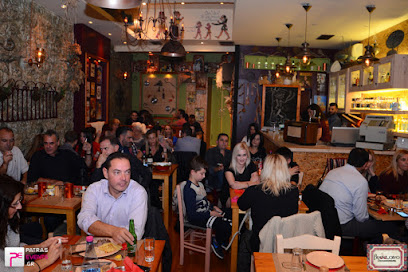
Voukamvilia
40.2 km
Experience authentic Greek cuisine at Voukamvilia in Patras – where delicious flavors meet vibrant nightlife.
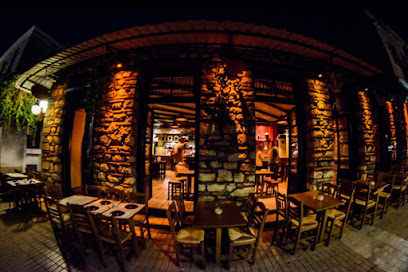
Tampakera Bar Restaurant
40.2 km
Experience the vibrant flavors and sounds of Greece at Tampakera Bar Restaurant in Patras – where small plates meet live music.

Mperkéti
40.2 km
Experience the vibrant flavors of Greece at Mperkéti, where small plates become an unforgettable culinary adventure.
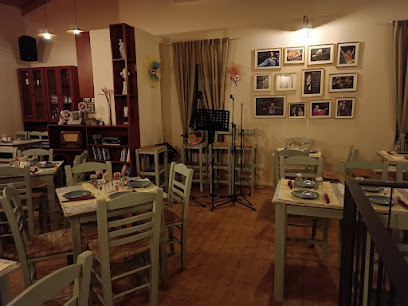
Sinialo
40.3 km
Experience the authentic taste of Greece at Sinialo – where delightful small plates meet warm hospitality in Patras.
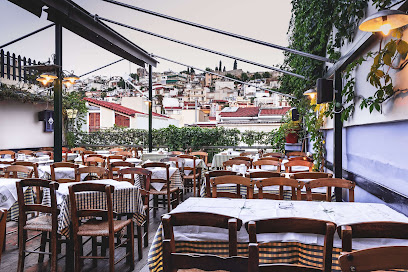
Μέλαθρον γεύσεις
40.3 km
Savor authentic Greek cuisine at Μέλαθρον γεύσεις in Patras - where tradition meets taste in every delightful dish.
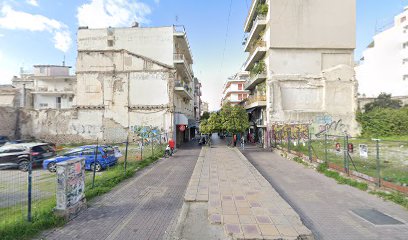
Troufa
40.3 km
Experience Mediterranean flavors at Troufa in Patras – where every meal is a celebration of local cuisine.
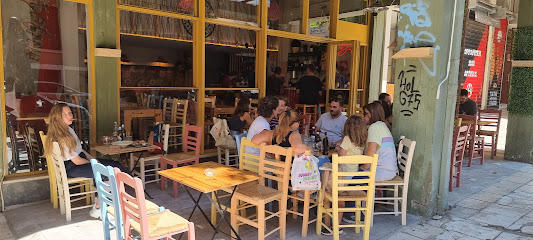
Mýthos
40.3 km
Discover Mýthos in Patras: A culinary haven offering authentic Greek dishes in a charming setting perfect for tourists.
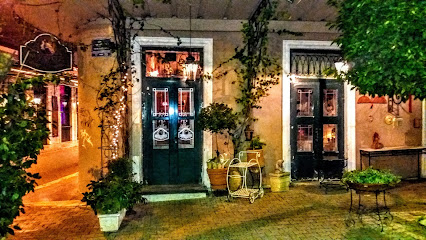
Labyrinthos
40.3 km
Experience authentic Mediterranean flavors at Labyrinthos in Patras – where culinary artistry meets a warm ambiance.
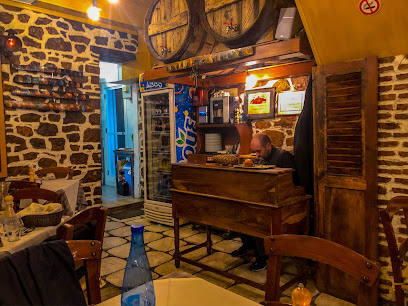
Kagiana
40.3 km
Discover the flavors of Western cuisine at Kagiana in Patras – where culinary tradition meets modern taste.
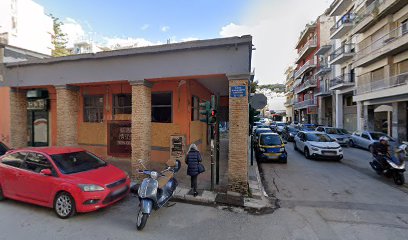
Markets, malls and hidden boutiques
Patra Mall
36.2 km
Experience the vibrant atmosphere of Patra Mall, where shopping, dining, and entertainment come together in the heart of Patras, Greece.

MoveStores - s.Oliver - Patra
36.2 km
Explore the stylish s.Oliver store in Patras, offering trendy apparel for men, women, and youth at great prices in a chic shopping atmosphere.

Soho outlet
38.1 km
Unveil your fashion potential at Soho Outlet, Patras - a stylish clothing store offering trendy apparel and unbeatable bargains.

Samovar natural cosmetics
40.3 km
Explore the essence of Greek nature with luxurious organic cosmetics at Samovar in Patras.
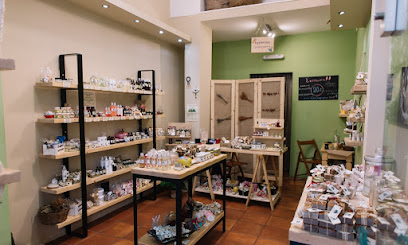
Σουβενίρ/Souvenir
40.4 km
Explore unique treasures and handcrafted gifts at Souvenir, the perfect stop for memorable mementos in Patras, Greece.
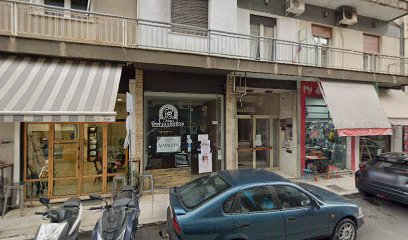
Irida
40.4 km
Discover Irida, a unique gift shop and art gallery in Patras, Greece, offering exquisite handmade crafts and local artworks for the perfect souvenir.
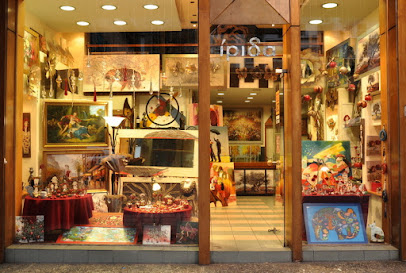
Bali Boutique
40.4 km
Explore Bali Boutique in Patras for chic dresses and exceptional style, catering to every fashionista's wardrobe desires.

KOKOI ELENI
40.4 km
Explore unique women's fashion at KOKOI ELENI in Patras, where local trends meet contemporary style for an unforgettable shopping experience.
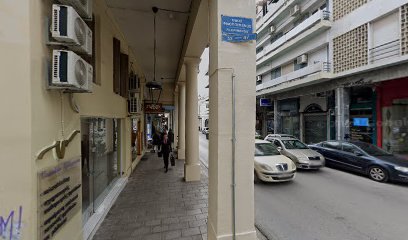
Petsinis Konstantinos
40.4 km
Explore the charm of Patras through unique gifts and local treasures at Petsinis Konstantinos, the perfect spot for a memorable shopping experience.
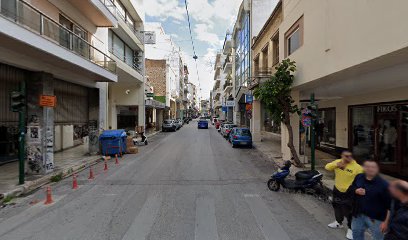
Woodart 365
40.4 km
Explore Woodart 365 in Patras for unique handcrafted gifts that reflect the heart of Greek artistry. A must-visit for every traveler.

ELEVEN-OUTLET
40.5 km
Explore an eclectic collection of vintage fashion at ELEVEN-OUTLET in Patras, where unique style meets local charm in a treasure trove of timeless treasures.

IQOS BOUTIQUE STORE ΠΑΤΡΑ
40.5 km
Explore the latest in tobacco and vaporizer products at the IQOS Boutique Store in Patras, where modern innovation meets tradition.
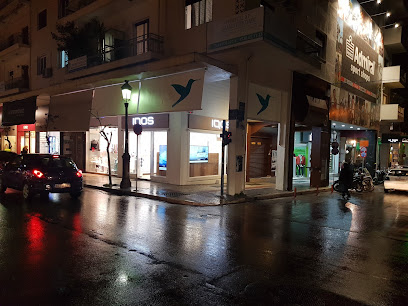
Epiloges Aikaterini Kaissari O.E.
40.5 km
Discover unique gifts and local treasures at Epiloges Aikaterini Kaissari O.E. in Patras, Greece, perfect for souvenirs and special keepsakes.
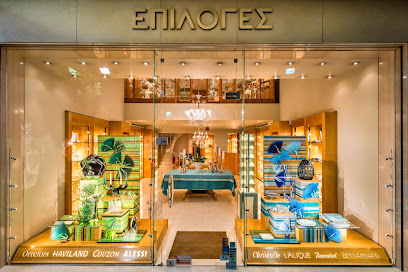
Marks & Spencer
40.5 km
Explore stylish clothing and essentials at Marks & Spencer in Patras, where quality meets affordability in a delightful shopping experience.
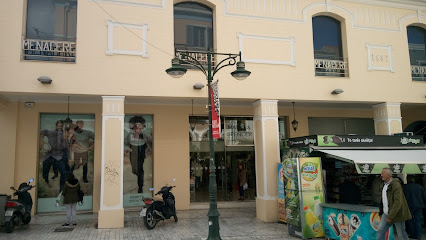
Cosmomarket
40.5 km
Explore Cosmomarket in Patras for unique gifts and local treasures that capture the essence of Greece's rich culture and craftsmanship.
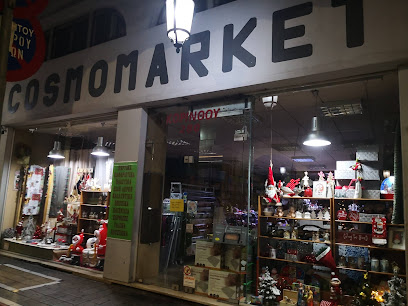
Essential bars & hidden hideouts
Kolwnaki | Cocktail bar
39.9 km
Discover Kolwnaki, the vibrant cocktail bar in Patras, Greece, where exquisite drinks and a lively atmosphere await every visitor.
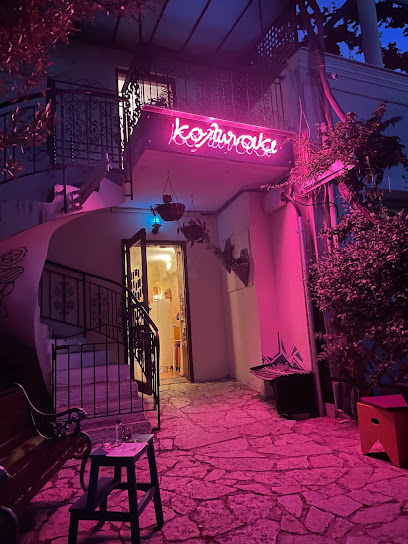
Banana Moon
40.1 km
Discover the vibrant ambiance of Banana Moon in Patras, where exceptional drinks and a lively atmosphere await every visitor.
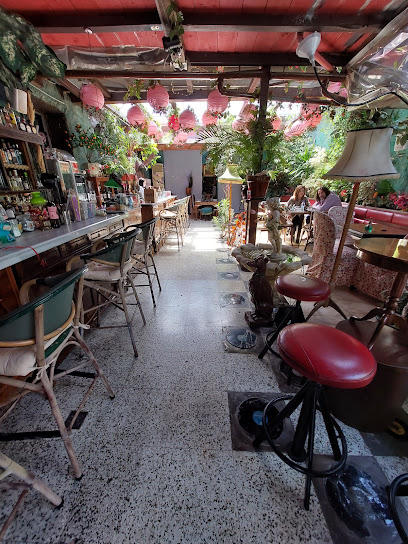
Patrasso Cava & Bar
40.2 km
Discover the vibrant nightlife of Patras at Patrasso Cava & Bar, where great drinks meet a welcoming atmosphere.

Frida Stage
40.2 km
Discover the heart of Patras' nightlife at Frida Stage, a premier live music bar and disco club with unforgettable entertainment.
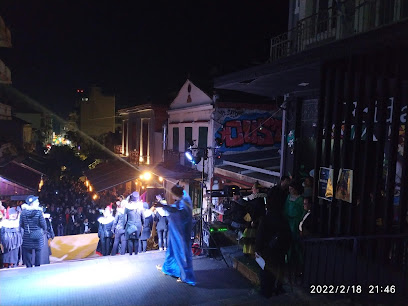
Abbey
40.2 km
Experience the vibrant nightlife at Abbey in Patras, where innovative cocktails, delicious cuisine, and a lively atmosphere await your visit.
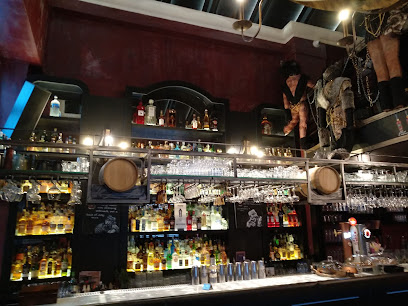
Syndetiras
40.3 km
Experience the vibrant atmosphere of Syndetiras, a must-visit bar and café in Patras, where locals and tourists gather to enjoy delicious drinks and light bites.
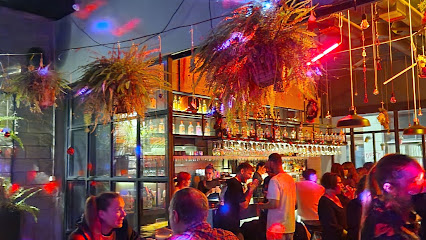
Móno
40.3 km
Experience the vibrant nightlife of Patras at Móno, a stylish bar offering creative cocktails and a lively atmosphere.
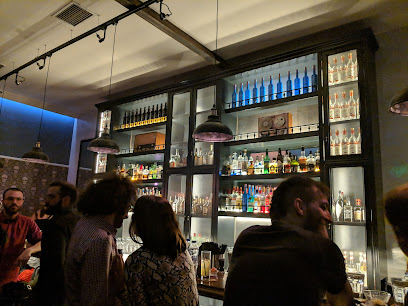
mad pomegranate tree
40.3 km
Experience the vibrant nightlife at Mad Pomegranate Tree, a lively bar in Patras offering exquisite cocktails and a local atmosphere.

The Dudes Street Bar
40.4 km
Discover the lively atmosphere of The Dudes Street Bar in Patras, where great drinks and unforgettable nights await you.

Manivela Soul Bar
40.4 km
Manivela Soul Bar in Patras: A lively blend of culture and flavors, perfect for coffee lovers and nightlife enthusiasts alike.
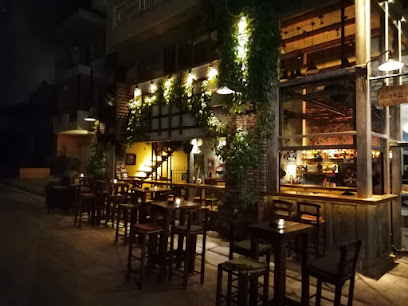
Bocas
40.5 km
Experience vibrant nightlife at Bocas, a premier bar and musical club in Patras offering live music, unique cocktails, and a lively atmosphere.
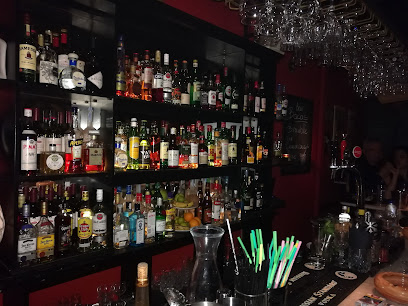
Suzie Q
40.6 km
Experience the vibrant nightlife of Patras at Suzie Q, where exquisite drinks and live entertainment create unforgettable memories.
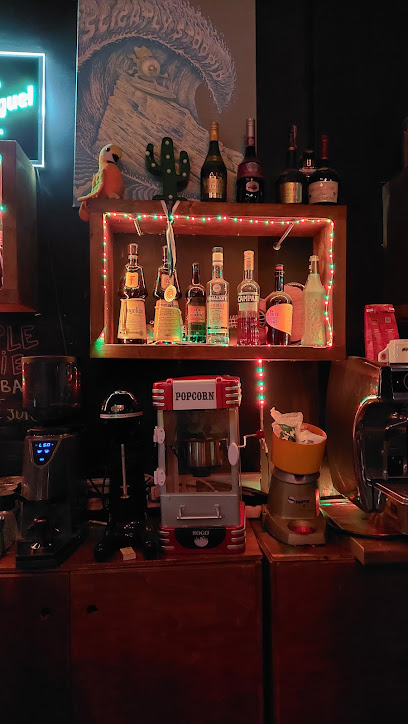
Avli By Vouz
40.6 km
Experience the vibrant nightlife of Patras at Avli By Vouz, a lively bar offering exceptional cocktails and a warm atmosphere for all.
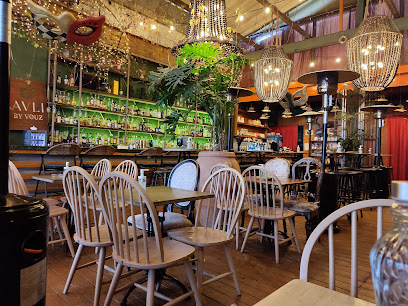
Vino Divino
40.6 km
Discover the vibrant atmosphere and exquisite wine selection at Vino Divino, a must-visit bar in Patras, Greece.
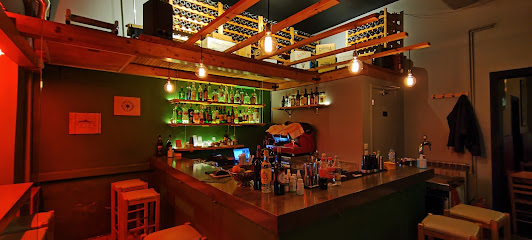
Arxaion
40.6 km
Discover Arxaion in Patras for a lively bar experience featuring exquisite drinks, great music, and a vibrant atmosphere to enjoy your night.
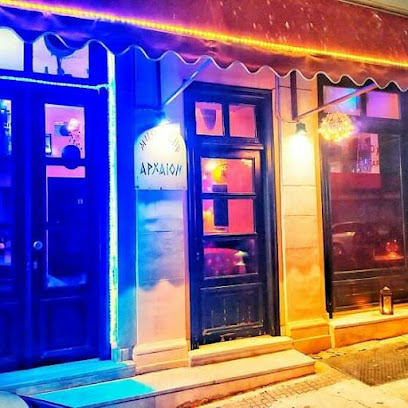
Nightclubs & after hour spots
Medusa New Age Club
24.8 km
Discover Akrata's vibrant nightlife at Medusa New Age Club, where dance, music, and unforgettable memories await every night.

Volcano Patra
39.0 km
Discover the electrifying nightlife at Volcano Patra in Drepano, Greece, where vibrant music meets an unforgettable party atmosphere.
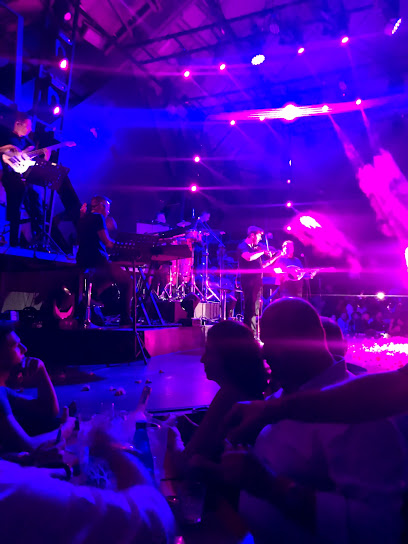
No Class
40.2 km
Discover the electrifying atmosphere of No Class, Patras' vibrant rock music club, where unforgettable nights and live performances await.
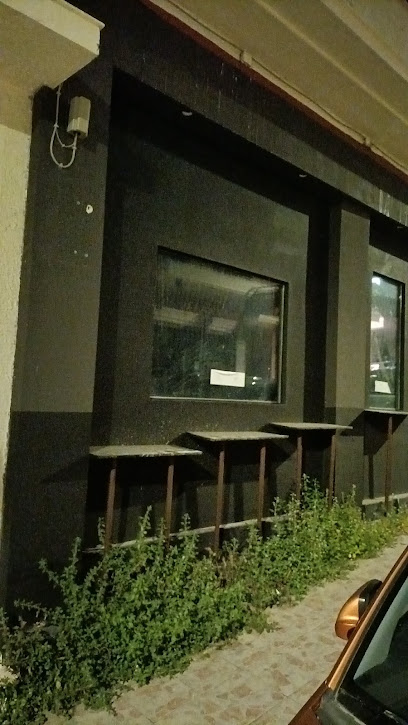
Navona Club Di Oggi
40.2 km
Discover the electric atmosphere of Navona Club Di Oggi, a must-visit disco club in Patras for an unforgettable night out.
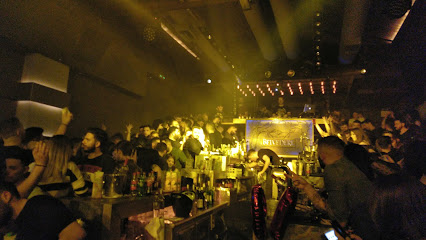
Mod's Club
40.2 km
Discover the electrifying nightlife at Mod's Club in Patras, where music, dance, and vibrant energy unite for an unforgettable experience.
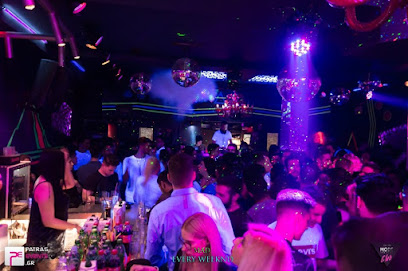
Saint Club
40.3 km
Dive into the energetic nightlife at Saint Club, the premier night club in Patras, Greece, where unforgettable experiences await every visitor.
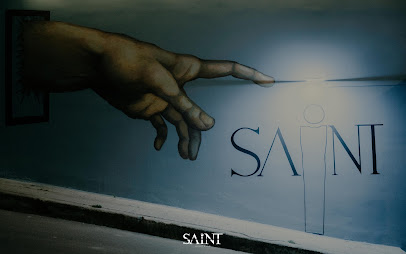
Magenda
40.6 km
Dive into the iconic nightlife of Patras at Magenda, where every night offers exhilarating music, delicious drinks, and a vibrant atmosphere.

Edem Nightclub
40.7 km
Dive into the vibrant nightlife of Patras at Edem Nightclub, where unforgettable dance experiences and lively music await every night.
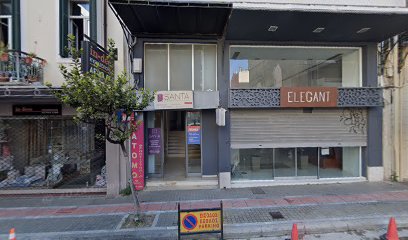
Tao Night Spot
40.7 km
Dive into the electrifying nightlife at Tao Night Spot, a premier nightclub in Patras, Greece, known for its vibrant atmosphere and exciting events.

Μπουάτ
40.7 km
Unleash your spirit at Μπουάτ, Patras' premier night club for dancing, socializing, and vibrant entertainment.

Vips Ellinadiko
40.8 km
Discover the electrifying nightlife at Vips Ellinadiko, a premier night club in Patras, offering vibrant music and an unforgettable atmosphere.
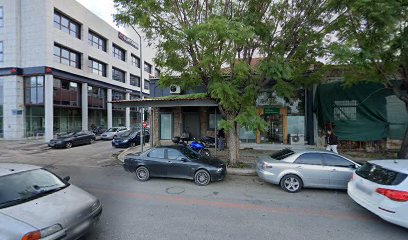
OMNIA downtown
40.8 km
Discover the electrifying nightlife at OMNIA Downtown, Patras' premier night club, where music, dance, and vibrant energy come together.
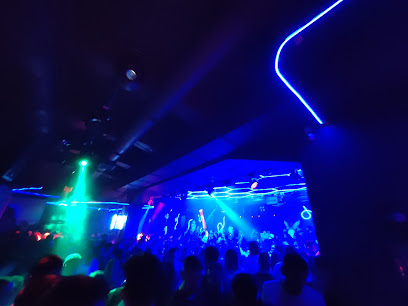
Asteria
40.9 km
Experience the vibrant nightlife of Patras at Asteria, where music, dancing, and unforgettable moments come alive until dawn.

O'mega Yacht Club
41.6 km
Uncover the vibrant nightlife of Patras at O'mega Yacht Club, where exceptional music and drinks create unforgettable moments.

Markiz_ Club
45.6 km
Discover the vibrant nightlife at Markiz Club in Xylokastro, where music, dancing, and unforgettable moments await every visitor.
